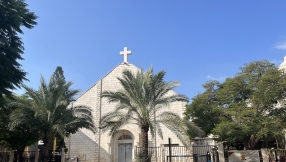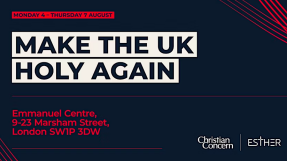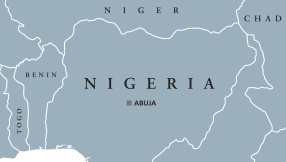Senior British Clergyman Speaks out as Civil Partnerships Act Comes into Force
|PIC1|The Civil Partnership Act will come into force today, Monday Dec. 5th, and will give gay couples equal positions in tax and inheritance rights as heterosexual married couples enjoy.
However, even though the Roman Catholic Archbishop of Cardiff has nothing against giving extra monetary rights to gay couples, he warns that the new law will also have very negative consequences.
Rev Peter Smith said, “What the Government should do in terms of public policy is support marriage rather than undermine it. To put beside marriage an alternative or what appears to be a perfectly approved legal alternative lifestyle I think does not help the institution of marriage at all.”
From Dec. 5th, 2005, homosexual couples will be able to start registering themselves for a legally-binding union, which is very much equal to marriage in most senses except the title.
After registration commences, the first civil partnership ceremonies will start taking place from Dec. 21st.
Reports are saying that Britain is expecting some 16,000 homosexual couples to use the new law by 2010.
|TOP|Britain is following in similar footsteps as countries such as Holland, which has not only gay marriage but also gay divorce laws in place. Historically Catholic Spain, Canada and also now South Africa have also allowed civil partnerships. Although, none of the countries will adopt the title “marriage” to the unions, they do allow gay partners the same tax and benefits as heterosexual couples.
The Church of England over the past few months has come under heavy criticism for its compromise on the position bishops should take towards the new laws.
The Evangelical Council, which is the umbrella organisation for the evangelical groups within the Church, demanded in August that the Church’s attempts to compromise with the government’s civil partnerships legislation should be withdrawn immediately.
The council spoke out yesterday, 10th August 2005, against the decision by the Church of England Council of Bishops that clergy would be allowed to enter civil partnerships, just as long as they informed their supervising bishop that they would abstain from partaking in sexual relations with their partner.
|AD|In a clear and formal statement, the Evangelical Council criticised the Church’s leaders of submitting to the secular culture of moral decline. The council was recorded as saying, “We urge the House of Bishops to withdraw this compromised and unworkable statement while continuing to affirm the historic teaching of the church ... It will further exacerbate the division threatening the future of the Anglican Communion.”
Last month the Reform National Conference ended with members being told that the Pastoral Statement issued by the House of Bishops regarding the Church position on the Civil Partnerships Act was an “outrage”, according to Anglican Mainstream.
In October, the Nigerian Anglican leader, Archbishop Akinola used similar language to describe the House of Bishops statement, also calling it an outrage.
"As of now, we have not yet reached the point of schism, but there's a broken relationship," Archbishop Peter Akinola told reporters.
The Church of England’s House of Bishops has already announced on 25 July that gay priests who register same-sex partnerships under a new civil law will be accepted as long as they remain celibate.
Archbishop Akinola has said that there are still hopes of recovering church unity if liberal churches that were supporting homosexuality showed “repentance”, according to AP.
Through the Global South grouping of churches in Africa, Asia and Latin America, the Nigerian Anglican Church with its 17.5 million members has been taking on a leading role to oppose Church acceptance of homosexuality.
The churches in Nigeria and Uganda whose leaders have firmly opposed the direction that the Church of England has taken on the issue of homosexuality, have already cut their relations with the U.S Episcopal Church after it consecrated a gay bishop in 2003.
The relationship with Canada’s Anglican Church was also ended after the blessing of same-sex marriages were approved.
Issues on homosexuality in the Church have deeply scarred the Anglican Communion. Akinola said, “Why should England be spared?”













